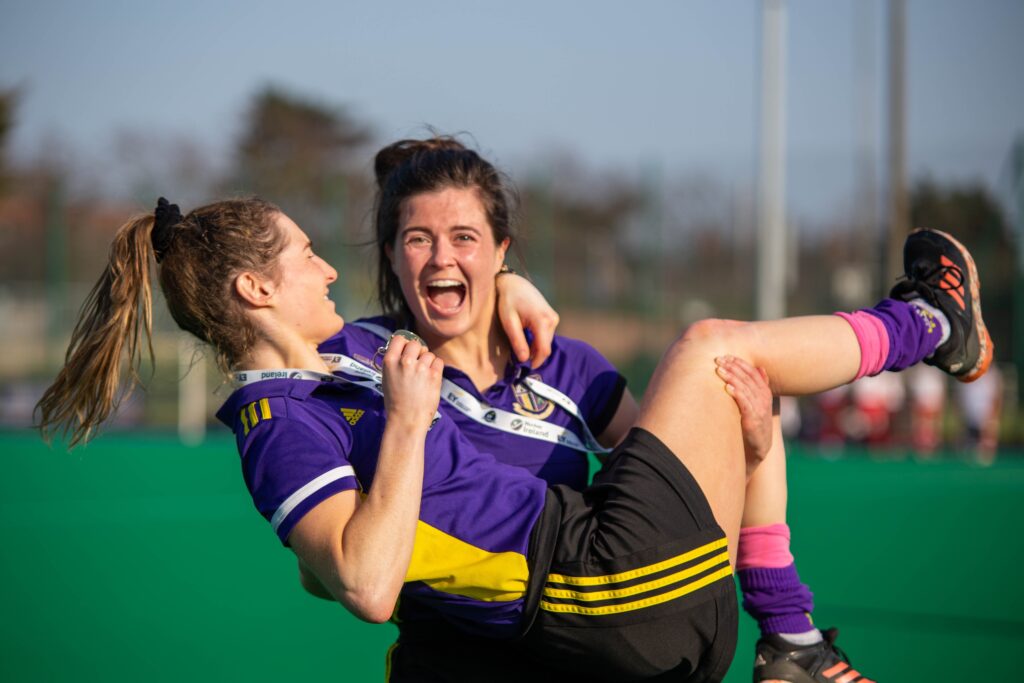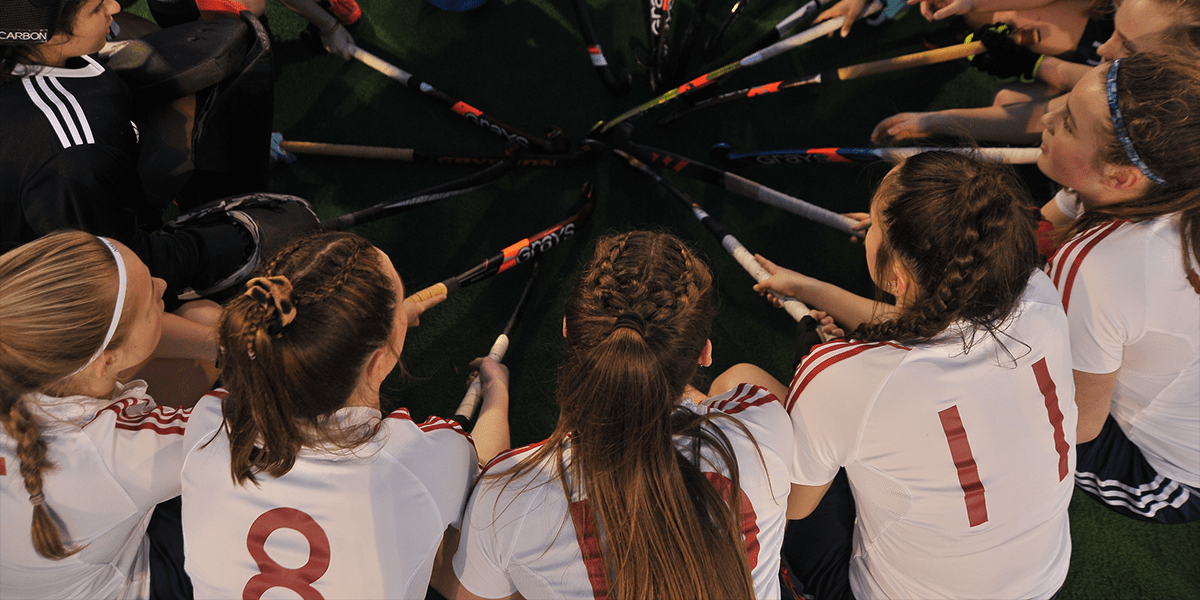After receiving some great feedback from last month’s article, which focused on nutrition struggles when travelling, I’ve decided to continue this theme! This month, I spoke with my 1-to-1 hockey clients and asked them what their biggest struggle was before working with a nutritionist like myself.
I’ve picked the top responses and in this article I aim to provide you with some nutrition advice to combat them. I hope that you are able to take something away from this article and please don’t hesitate to reach out if you require additional nutrition support to excel in hockey and improve your health!
- “I can’t eat properly before a training session, I don’t have the time.”
It is so important to plan all meals and snacks around training sessions and matches so that you can perform at your best. Your body needs carbohydrates to provide the fuel for these sessions. Always test out your optimal meal and meal timings, before using them for training prep to make sure you do not suffer from any gastrointestinal issues.
If you have a training session early in the morning, it is smart to eat a healthy dinner the night before. This meal should contain lots of vegetables for health, wholegrains for energy and a lean protein source for the muscles. Some good examples include chicken tomato pasta, stir fry’s, vegetable soup and bread, or fish with vegetables and potatoes.
Then consume a high carbohydrate snack before bed to help top up glycogen stores in the body. This could be a bagel with jam, oat bars or rice cakes.
Lastly, on the morning of training, try to have some form of carbohydrates that is moderate in fibre content. If you struggle to eat early in the morning then try fruit juices, dried fruit, fresh fruit, or cereal bars. If you can stomach a full breakfast meal, then high carbohydrate options include muesli, porridge, and wholegrain toasts with jam and fruit.
If you have a training session later in the day, prioritise a high carbohydrate meal 3-4 hours beforehand, for example a chicken salad sandwich, quinoa and meat, and vegetable casseroles. Then have a carbohydrate snack 1 hour before that is fairly easy to digest. Some good snacks include fruit, cereals or light sandwiches.
- “It is too hard to remember to drink enough water.”
I’ve found that hockey players and athletes in general, often underestimate how much fluid intake they need. It is so important to stay hydrated, as dehydration can negatively impact physical performance, cognition and focus.
You can easily check how hydrated you are by the colour of your urine. A pale coloured urine indicates that you are well hydrated, so every time you go to the toilet, have a little check!
An easy tip to stay hydrated is to always carry a water bottle around with you and try and drink with every meal and snack that you have.
These tips will help you start your training sessions hydrated, then during training try and consume around 250ml water every 15-20mins. And don’t forget to hydrate after exercise to aid recovery, a great post workout drink could be a milk drink, sports drink or water.
- “I don’t know how to get enough iron in from my diet.”
Low iron levels and iron deficiency is extremely common in hockey players, especially female athletes. This can lead to negative effects on performance as it causes fatigue and reduces performance. It is recommended to consume 8.7 mg a day for men over 18 years and 14.8mg a day for woman aged 19 to 50 years.
If you are frequently feeling tired without any reason, then speak to your GP and ask for a blood test to get your iron levels checked.
Foods to include in your diet that are high in iron are: red meats, iron fortified cereals, shellfish, spinach and green vegetables, legumes, chicken and eggs.
It is also important to include vitamin C into your diet as this aids iron absorption in the body. Therefore, combining meals with iron and vitamin C in as many meals and snacks as possible will be beneficial. Food’s high in vitamin C include fruits and vegetables such as tomatoes, broccoli, oranges, peppers and berries.

- “I can’t manage my energy intake, I can’t eat enough in the day.”
Good nutrition means eating a wide variety of foods. Too many people are stuck eating the same 10 foods over and over again. But it is so important to mix it up and try new recipes, ingredients and snacks.
The easiest way to eat healthy is to follow an 80-20 rule. This means that 80% of your food intake is made up of whole foods and is healthy and nourishing. But it allows that other 20% to be more relaxed and enjoyable. Eating food doesn’t have to only be for nourishment, we are allowed to have 20% of our foods for pleasure. This more relaxed approach will make healthy eating and a healthy lifestyle much more sustainable.
But it isn’t just about what we eat, we need to make sure we are eating enough to fuel our bodies. It is recommended for athletes to consume 3-4 main meals a day, dependant on activity levels and training intensity. These should contain fruits or vegetables and all three macronutrients (carbohydrates, protein and fats). This ensures that meals are filling, full of nutrients and providing fuel for our brain and muscles!
As well as main meals, athletes should try to have 2-3 healthy snacks every day to manage energy. This helps you eat every 3-4 hours. Good healthy snacks include; energy balls, vegetable sticks and hummus, light sandwiches, fruit and nut butters, trail mix, cereal and yogurt, milk drinks, smoothies, fruits and vegetables. Again, try not eating the same three snacks every day, mix it up and try new things as healthy eating and energy management doesn’t have to be boring!
To Summarise…
I hope these nutrition struggles don’t relate to your current nutrition, but if they do then I hope you are able to take away some key nutrition advice from this month’s article! If you have any nutrition struggles you’d like to discuss in a 1 on 1 setting, don’t hesitate to contact me directly via email and I’d be happy to chat!
Eat Well, Perform Better!




